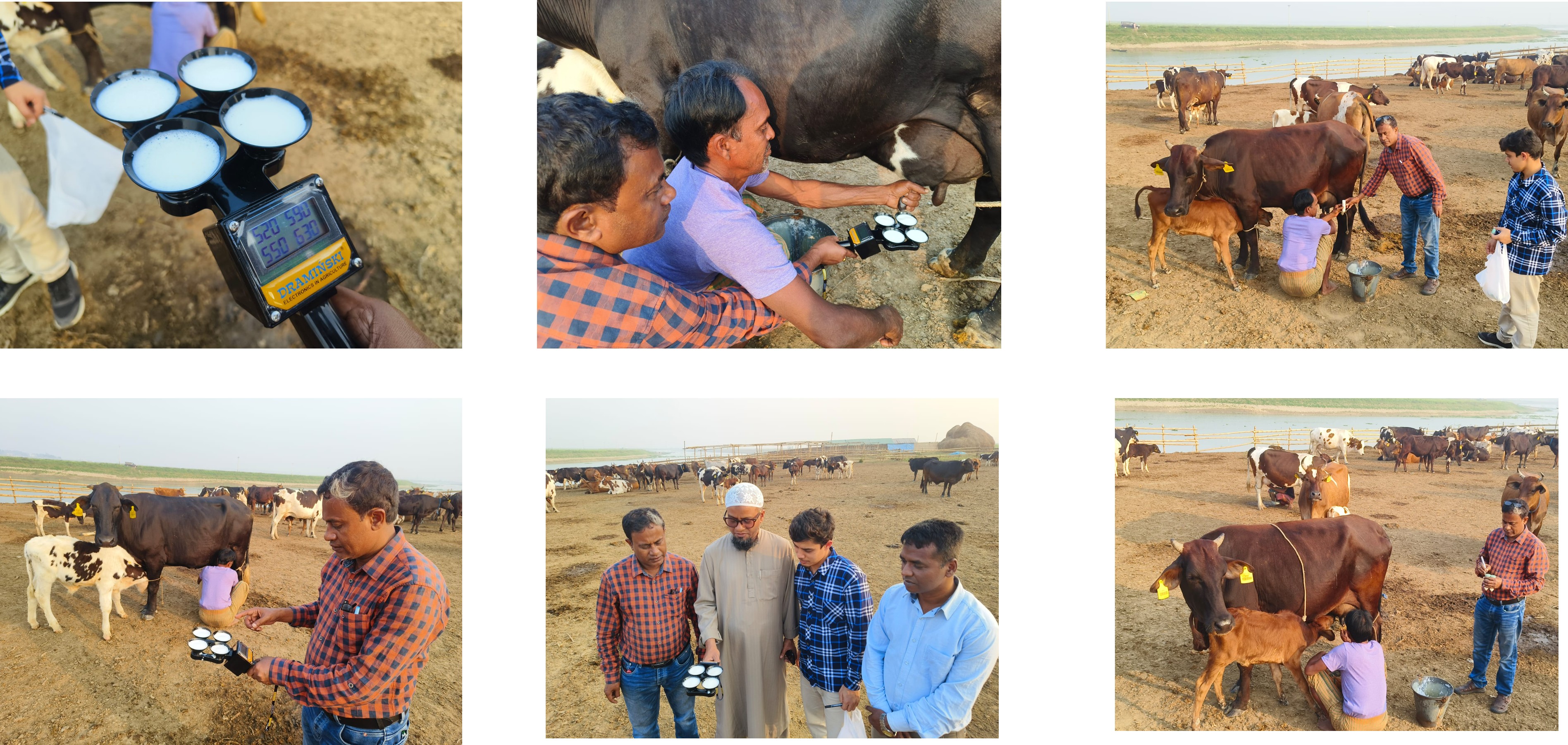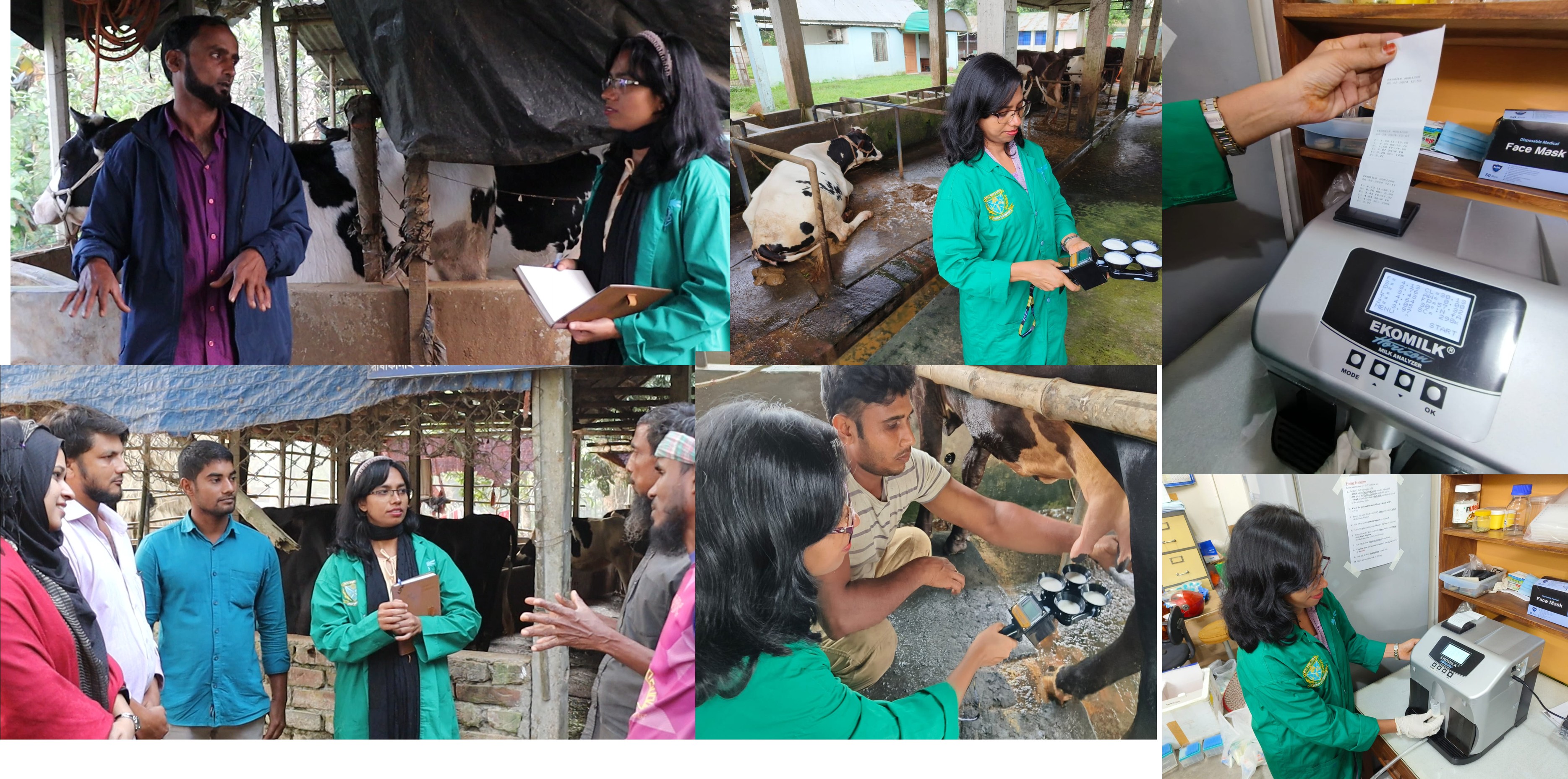Development of Technology Package for Prevention and Control of Subclinical Mastitis in Lactating Cows
Mymensingh
Dairy animals are key to the rural economy, especially for poor farmers in Bangladesh, but lactating cows often suffer from subclinical mastitis (SCM). In many countries, udder health management and SCM control packages have been developed, but to our best knowledge, no specific program exists in Bangladesh. Therefore, to control the progression of clinical mastitis, it is needed to early detection and control of SCM in cows.
During the 3-year project duration, we will create a technology package for the prevention and control of SCM in lactating cows tailored to farmers. To achieve the first objective, a pretested, semi-structured questionnaire was administered to 120 dairy farmers in 60 dairy units to collect base-line data on herd management and milking practices in Mymensingh and Sirajganj districts. On-farm estimation of SCM, the tests like CMT and Electric Conductivity (EC) test was used, and for confirmation of SCM, milk somatic cell were counted by Ekomilk Horizon Unlimited Milk Analyzer. Flyer, awareness video and hand-on training were provided for farmers awareness. Intervention study will be started soon and prevalence of SCM will be estimated through end-line survey
The base-line survey revealed that (i) most of the farmers (93.5%) were not aware of SCM and its effect on milk yield and quality but they knew about clinical mastitis (CV), (ii) udder washing was practiced by all farmers, but they lacked knowledge about washing the hands with soap and wiping the udder with towels before milking, (iii) 100% farmers do not practice pre/post milking teat dipping, (iv) only 35% farmers provided feed after milking or at the end of milking. Overall, prevalence of SCM was 52.5% and 29.42% for cow and quarter level, respectively. Multiparous cows, high yielding and BCS >3 cows were significantly reported for SCM. A flyer consisting of ten tips for controlling SCM/CM and a video documentary for improving farmer awareness has been developed. In addition, a good husbandry practices training module has developed for adoption and intervention studies in selected dairy units. Effectiveness of training, adoption and intervention study will be conducted in selected farms very soon.
SCM is a prevalent issue in dairy farming and poses a significant obstacle to the advancement of dairy industry in Bangladesh. Understanding and adopting identified risk factors could be crucial for developing effective control strategies for SCM.
After successfully completing the project, dairy farmers will directly be benefited. Farmers will be trained to early detect SCM of cow’s udder which will prevent to convert clinical mastitis. Ultimately, udder health management and milking hygiene practices will be improved and milk production will be increased. Farmers will financially be gainer through more milk selling.
Yes, farmers will be trained to detect SMC early, which will help prevent the progression of clinical mastitis. The project's flyer and video could be scaled up for dairy farmers in Bangladesh.


